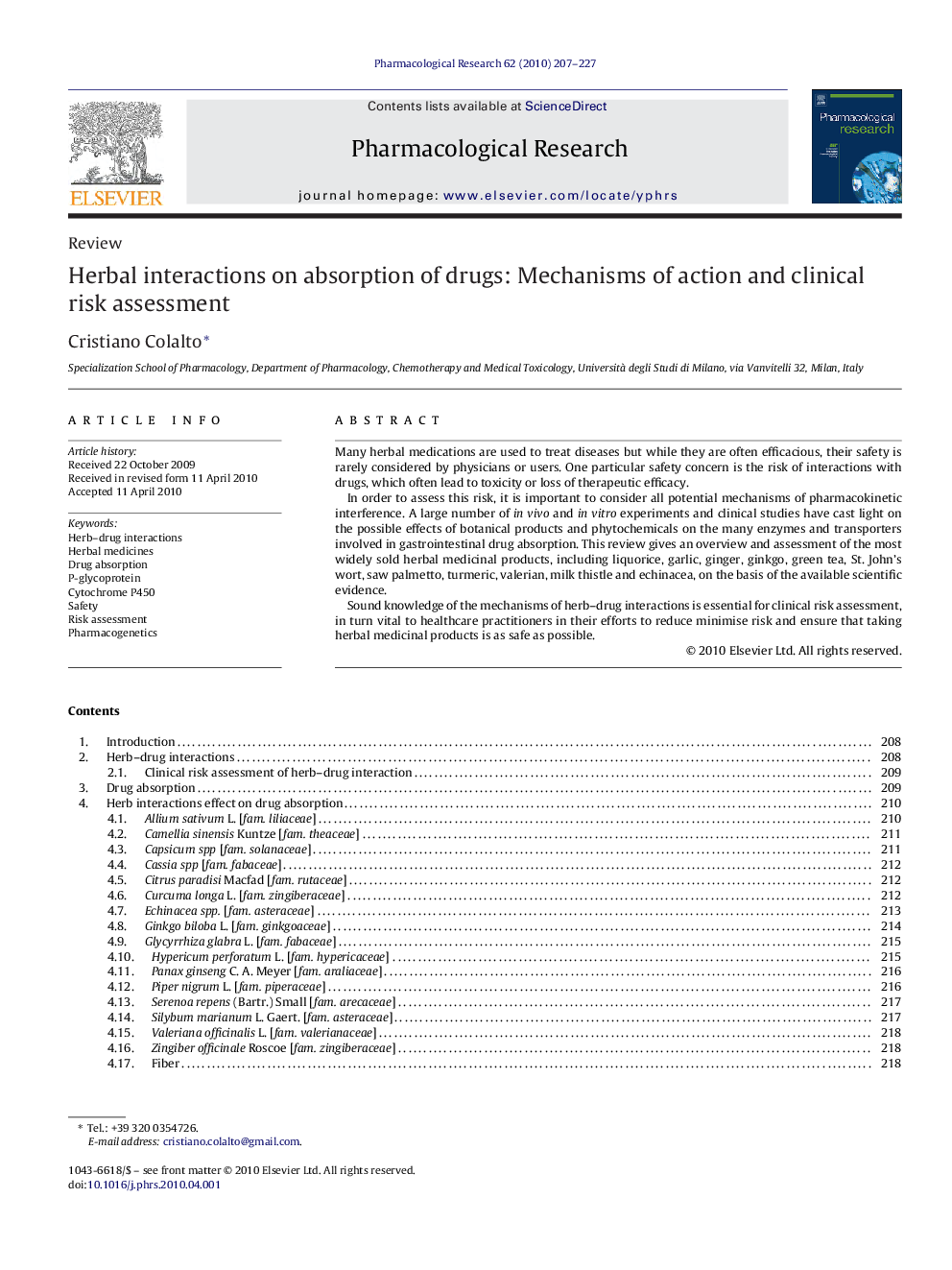| Article ID | Journal | Published Year | Pages | File Type |
|---|---|---|---|---|
| 2562448 | Pharmacological Research | 2010 | 21 Pages |
Many herbal medications are used to treat diseases but while they are often efficacious, their safety is rarely considered by physicians or users. One particular safety concern is the risk of interactions with drugs, which often lead to toxicity or loss of therapeutic efficacy.In order to assess this risk, it is important to consider all potential mechanisms of pharmacokinetic interference. A large number of in vivo and invitro experiments and clinical studies have cast light on the possible effects of botanical products and phytochemicals on the many enzymes and transporters involved in gastrointestinal drug absorption. This review gives an overview and assessment of the most widely sold herbal medicinal products, including liquorice, garlic, ginger, ginkgo, green tea, St. John's wort, saw palmetto, turmeric, valerian, milk thistle and echinacea, on the basis of the available scientific evidence.Sound knowledge of the mechanisms of herb–drug interactions is essential for clinical risk assessment, in turn vital to healthcare practitioners in their efforts to reduce minimise risk and ensure that taking herbal medicinal products is as safe as possible.
